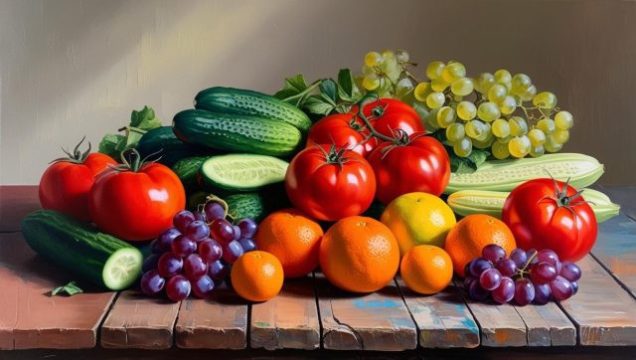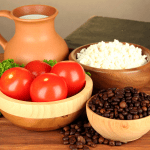Storing fresh produce correctly is one of the most overlooked factors in maintaining food quality and preventing waste. While many people focus on temperature and humidity, fewer realize that the proximity of certain foods to one another can significantly affect how quickly they spoil. Ethylene gas, moisture release, and sensitivity to environmental conditions all play a role in determining shelf life.
In this guide, we’ll explore 10 pairs of foods you should never store next to each other—combinations that, if avoided, can help extend freshness, preserve nutrients, and even save you money. From berries and bananas to onions and potatoes, understanding these interactions can transform how you manage your kitchen.
If you’ve ever wondered how to store fruits and vegetables to last longer, or found yourself tossing out wilted greens or sprouted potatoes too soon, this list of common food storage mistakes to avoid will give you the clarity and solutions you need.
10. Berry Storage Secrets: Keep Blueberries and Strawberries Apart
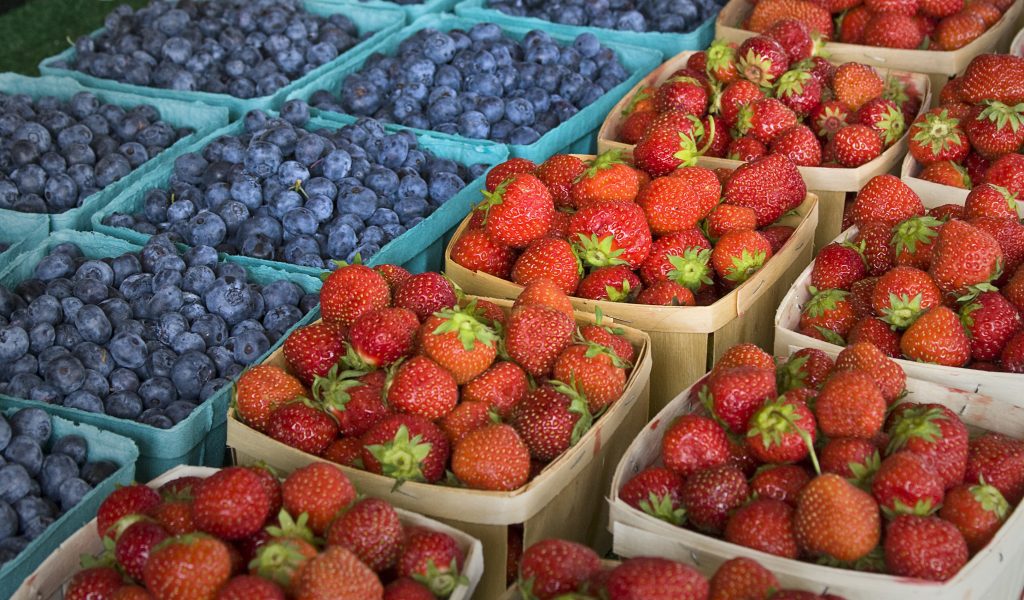
Both blueberries and strawberries are beloved for their vibrant flavors and health benefits. However, these berries have different storage needs and emit different levels of ethylene gas, a natural plant hormone that regulates ripening.
Strawberries are highly sensitive to ethylene, which means that placing them near ethylene-producing fruits like blueberries can cause them to over-ripen and spoil rapidly. Blueberries, while not the most potent ethylene producers, still release enough of the gas to affect more delicate fruits stored nearby.
For optimal freshness, store strawberries in a breathable container lined with paper towels in the refrigerator, ideally in a crisper drawer with low humidity. Blueberries, on the other hand, should also be refrigerated but can tolerate slightly higher humidity levels. Keeping them apart is one of the simplest kitchen hacks for food storage longevity.
By understanding the science behind how foods interact in storage, you can prevent premature spoilage and enjoy your produce longer.
9. Why Nectarines Spoil Cabbage (And How to Prevent It)
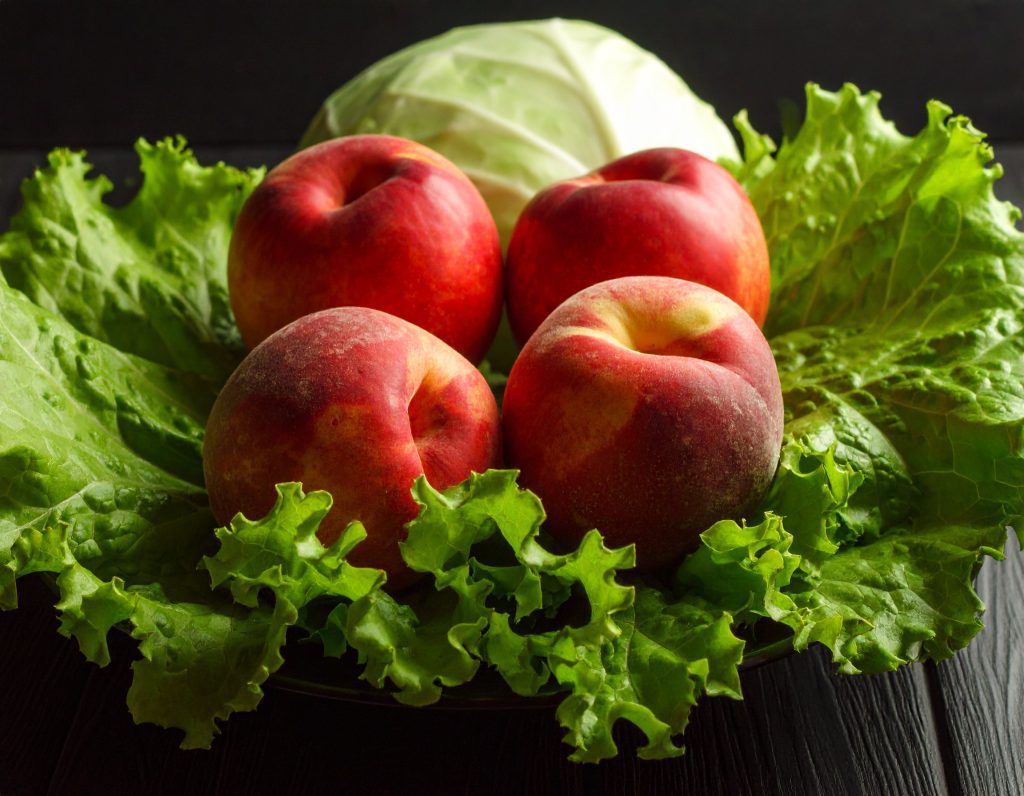
Nectarines, a juicy summer stone fruit, and cabbage, a hearty cruciferous vegetable, may both reside in your refrigerator—but they should never be stored side by side.
Nectarines are high ethylene gas producers. This gas accelerates the ripening process of nearby produce, which can be disastrous for ethylene-sensitive vegetables like cabbage. When exposed to ethylene, cabbage wilts prematurely, develops off-odors, and loses its crisp texture, significantly reducing its freshness and palatability.
To prevent this, always store nectarines separately, preferably in a fruit drawer or on a counter if they are not fully ripe. Once ripe, they can be moved to the refrigerator in a separate compartment. Cabbage should be kept in the vegetable crisper drawer, wrapped loosely in plastic or a breathable produce bag to maintain moisture and block out external ethylene sources.
This separation technique helps extend shelf life of produce, ensuring both your fruits and vegetables stay fresher, longer. Avoiding incompatible storage combinations is a simple yet effective way to make the most of your grocery haul.
8. Pears and Root Vegetables
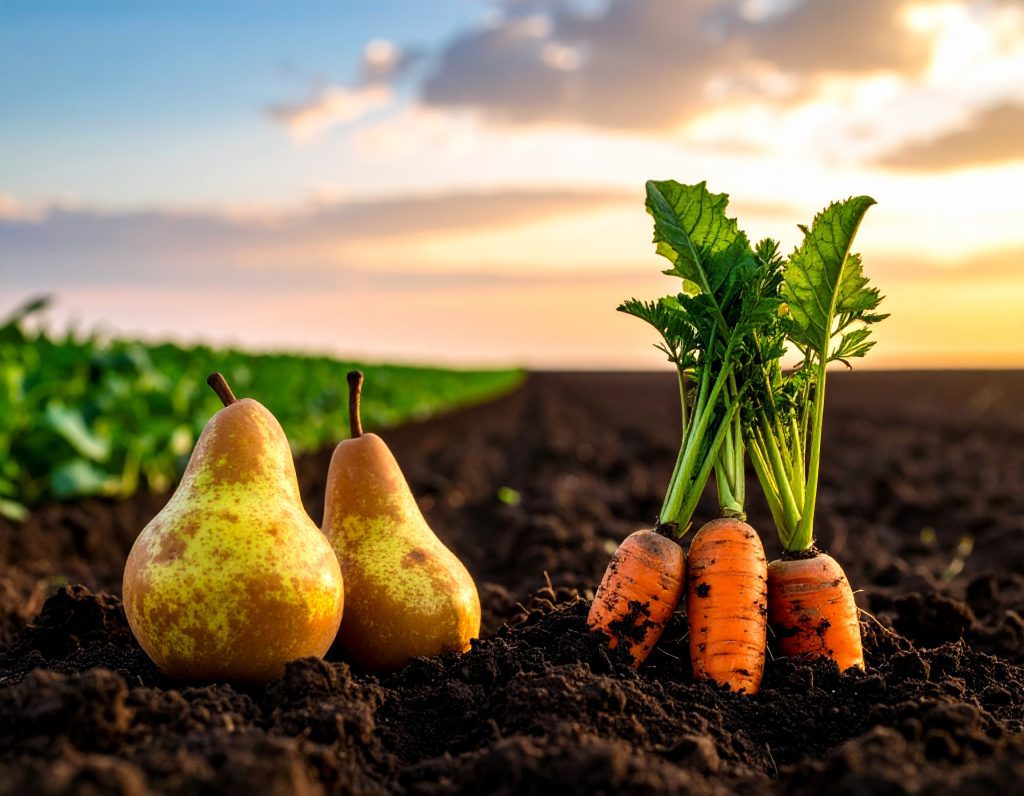
While it may seem convenient to store all produce together in one bin, combining pears with root vegetables such as potatoes, carrots, or turnips is a common mistake that can compromise both quality and shelf life.
Pears, like many fruits, emit significant amounts of ethylene gas as they ripen. Root vegetables, particularly carrots and potatoes, are highly sensitive to ethylene and respond by developing bitter flavors, sprouting prematurely, and softening before their time. Turnips may also become rubbery and lose their crispness when exposed to ethylene.
To avoid this, store pears in a separate fruit basket or a designated section of the refrigerator. Root vegetables should be kept in a cool, dark, and well-ventilated area, ideally away from all ethylene-emitting fruits. Carrots benefit from being wrapped in paper towels and sealed in perforated plastic bags in the crisper drawer, while potatoes and turnips prefer a dark pantry or cellar environment.
Separating these items will maximize freshness of fruits and vegetables, allowing each to maintain its natural texture, flavor, and longevity. Small changes in storage habits can lead to substantial improvements in food quality and waste reduction.
7. Keep Produce Fresh: Separate Citrus from Sensitive Veggies
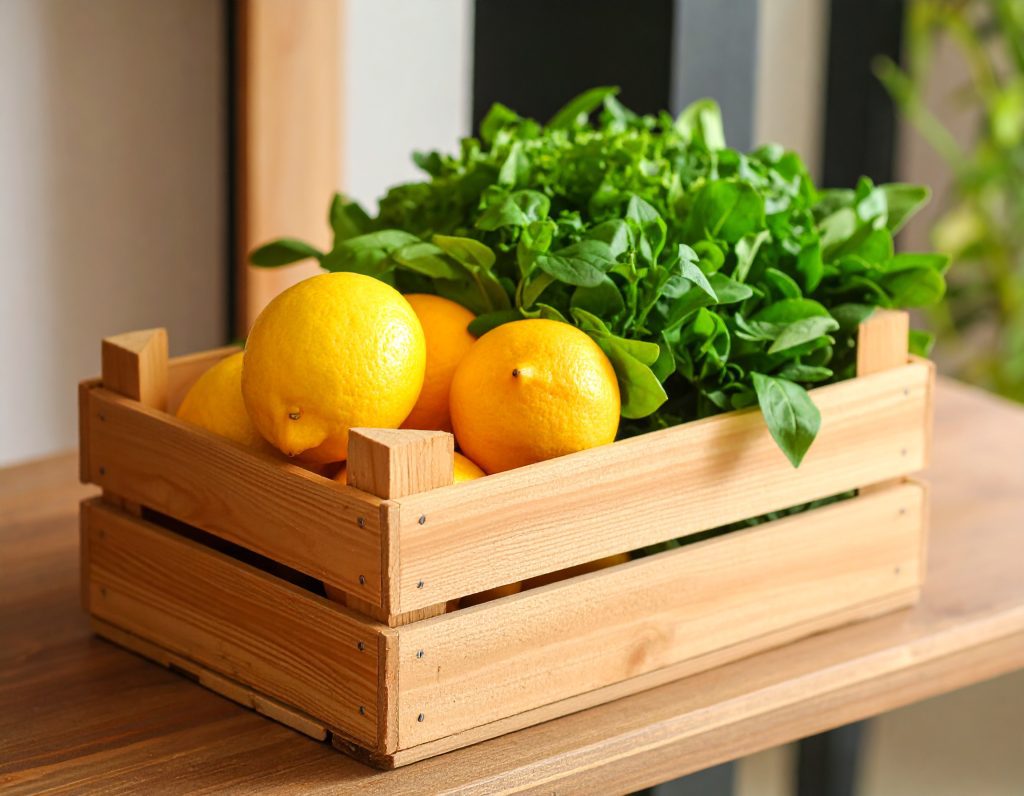
Citrus fruits—such as oranges, lemons, and grapefruits—are prized for their bright flavors and long shelf life. However, storing them next to ethylene-sensitive produce like leafy greens and broccoli can significantly shorten the freshness of these vegetables.
Although citrus fruits are not heavy ethylene producers, their presence in close quarters can still impact delicate greens. Vegetables such as spinach, kale, lettuce, and broccoli are particularly vulnerable to ethylene exposure, which can lead to yellowing, wilting, and loss of nutritional value.
To avert this, keep citrus fruits in a separate refrigerator drawer or at room temperature in a fruit bowl, away from vegetables. Leafy greens and broccoli should be stored in the high-humidity crisper drawer, ideally in perforated plastic or mesh bags to maintain proper airflow and moisture levels.
Understanding how to store fruits and vegetables to last longer is essential for preserving freshness, minimizing food waste, and maintaining optimal taste and texture. Avoiding incompatible pairings like citrus and ethylene-sensitive produce is a key part of that strategy.
6. Want Ripe Avocados to Last? Store Them Away From Bananas
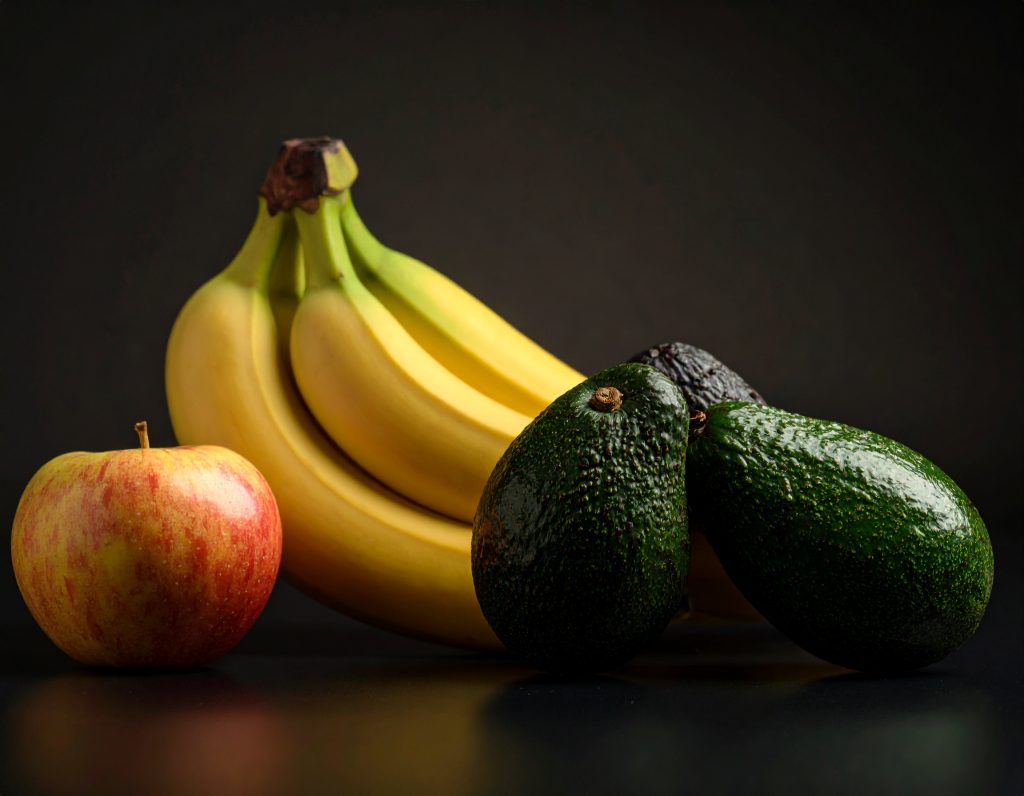
Avocados are one of those fruits that seem to go from rock-hard to overripe overnight. If you’re trying to keep them fresh for more than a day or two, it’s important to be mindful of what you store them next to—especially ripe bananas and apples.
Bananas and apples release high levels of ethylene gas as they ripen. While this can be useful if you’re trying to quickly soften a rock-hard avocado (just pop them in a paper bag together), it’s the opposite of what you want when you’re trying to delay the process.
The best way to prevent produce from ripening too fast is to keep ethylene-sensitive fruits like avocados away from major ethylene emitters like ripe bananas and apples. Store avocados at room temperature away from other fruits if they’re not quite ready, and transfer them to the fridge once they’ve reached peak ripeness to slow things down even further.
A little separation goes a long way when it comes to extending the life of your produce—and keeping that perfect avocado toast moment within reach.
5. Avoid Quick Spoilage: Don’t Store Mangoes with Grapes
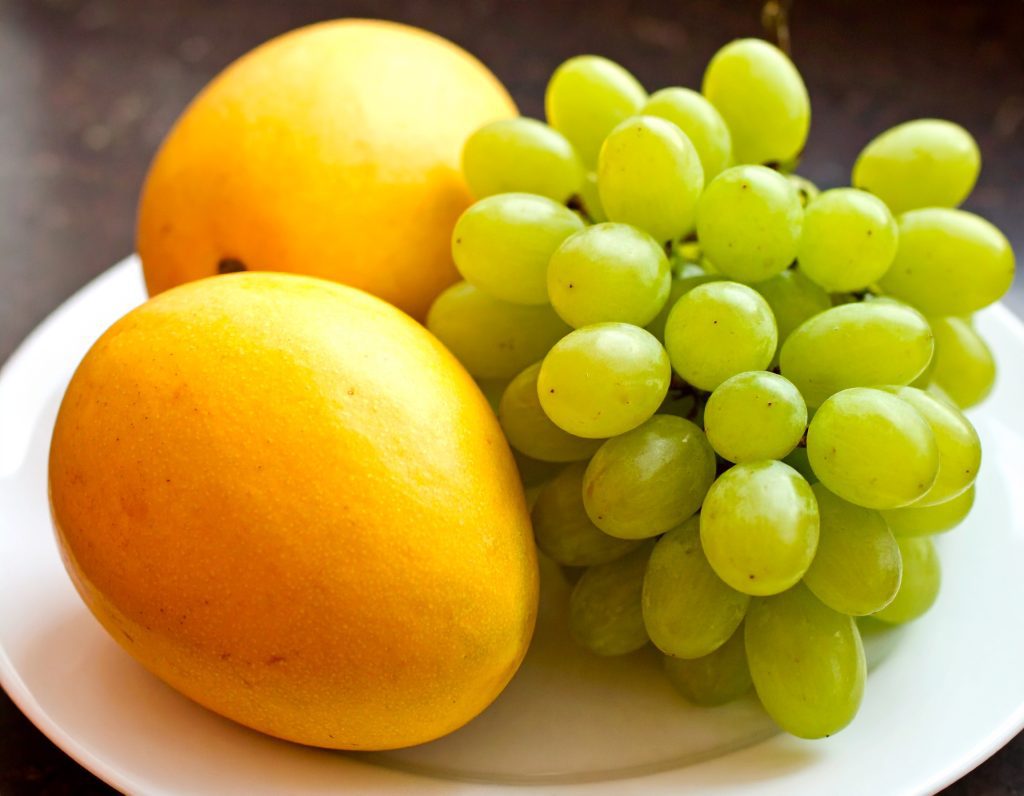
When organizing your fridge or fruit bowl, it might seem harmless to pile grapes and mangoes together. After all, they’re both sweet, juicy, and often eaten fresh. But storing them side by side can actually shorten their shelf life.
Here’s why: Mangoes are powerful ethylene producers, especially as they ripen. Grapes, on the other hand, are highly sensitive to ethylene gas. When exposed, grapes can deteriorate rapidly—losing firmness, developing off-flavors, and molding much faster than expected.
To keep both fruits at their best:
- Store grapes in the refrigerator in a ventilated bag or container.
- Keep mangoes at room temperature until ripe, then refrigerate them separately if needed.
Being intentional about food storage isn’t just about quality—it’s also about savings. You can save money on groceries by storing food correctly, avoiding the waste that comes from premature spoilage and keeping your produce fresher for longer.
4. Why Apples Can Make Your Carrots Taste Bitter
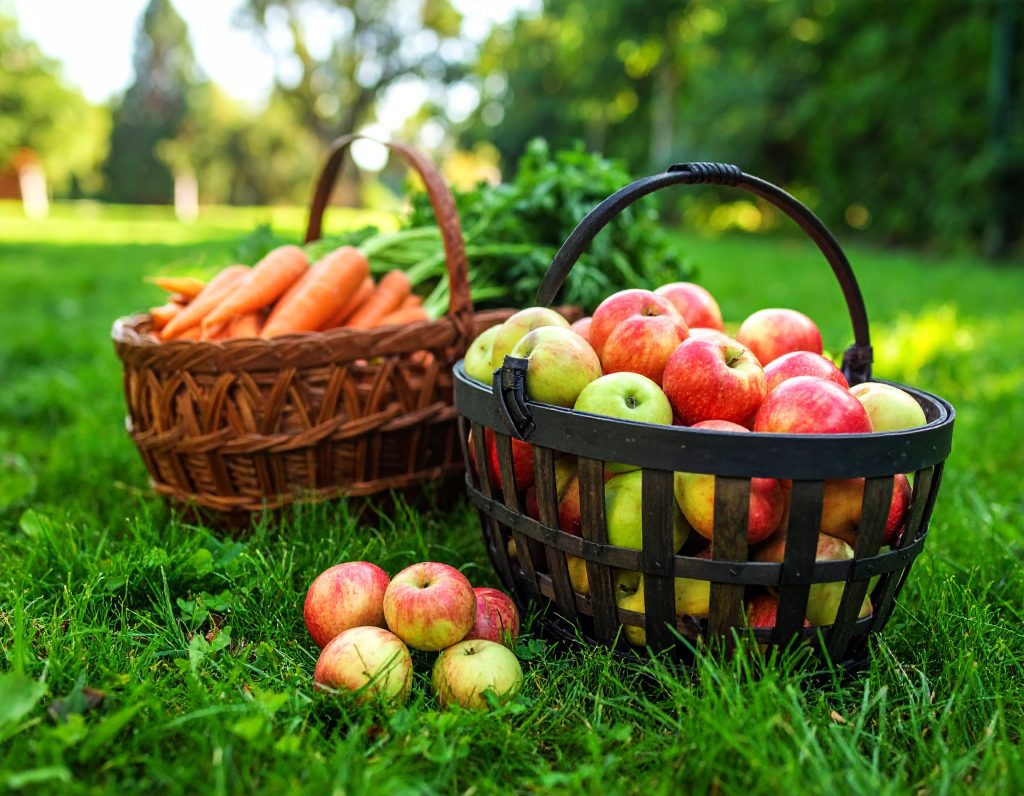
At a glance, apples and carrots might seem like a healthy, convenient duo to store together in the fridge. But in reality, this pairing can lead to disappointing results—especially for the carrots.
Apples are well-known ethylene producers. When stored near carrots, this gas accelerates the carrots’ aging process, causing them to develop a bitter, soapy taste and lose their signature crunch. While both are refrigerator-friendly, they should occupy different zones to maintain optimal quality.
Here’s how to store them properly:
- Apples can be kept in the low-humidity drawer or a dedicated fruit compartment.
- Carrots should be stored in a high-humidity drawer, preferably in a sealed container or bag to retain moisture.
This is a classic example of pantry items not to store together—even though they technically reside in the fridge, not the pantry. The principle remains: separating produce based on ethylene sensitivity helps preserve both flavor and texture.
Making small adjustments in how you group fruits and vegetables can have a big impact on freshness and food waste reduction.
3. The Banana Effect: Don’t Store Them With Other Produce
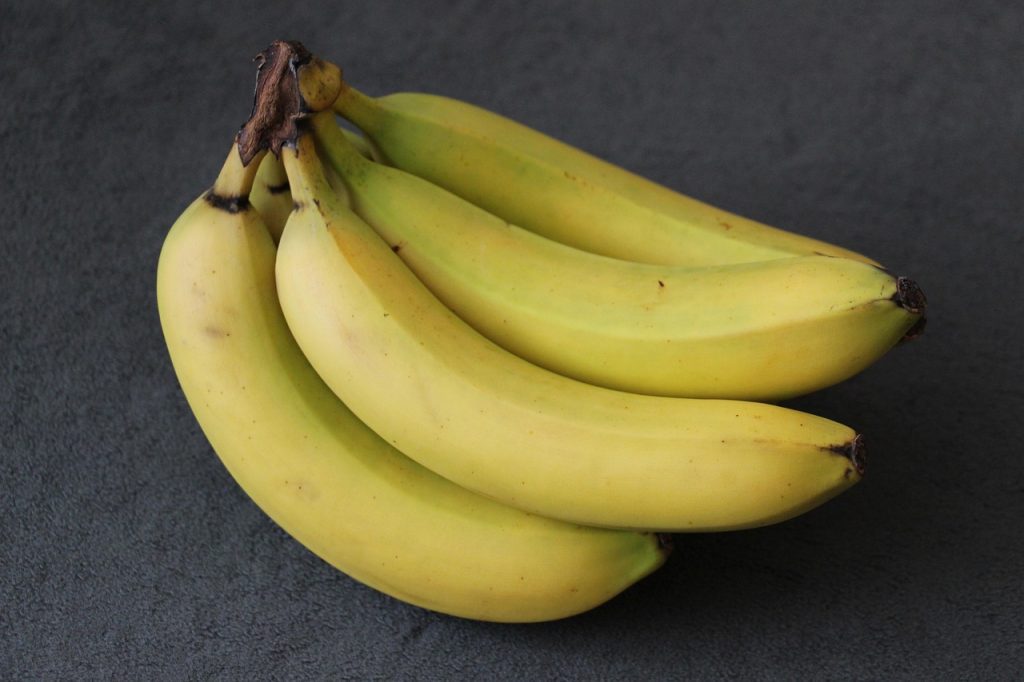
Bananas are convenient, nutritious, and always on hand—but they don’t play well with others. As they ripen, bananas emit high levels of ethylene gas, which can cause nearby fruits to ripen—and spoil—much faster. If you’ve ever asked, why do some fruits make other fruits spoil, bananas are often the answer.
Store Bananas Separately
To slow the ripening process, keep bananas at room temperature and away from ethylene-sensitive fruits like apples, kiwis, and citrus. Storing them together can cut the shelf life of other produce in half.
Protect Other Fruits
Place other fruits in the refrigerator or in a separate fruit bowl. Keeping them apart helps maintain flavor, texture, and freshness.
2. Tomatoes and Cucumbers
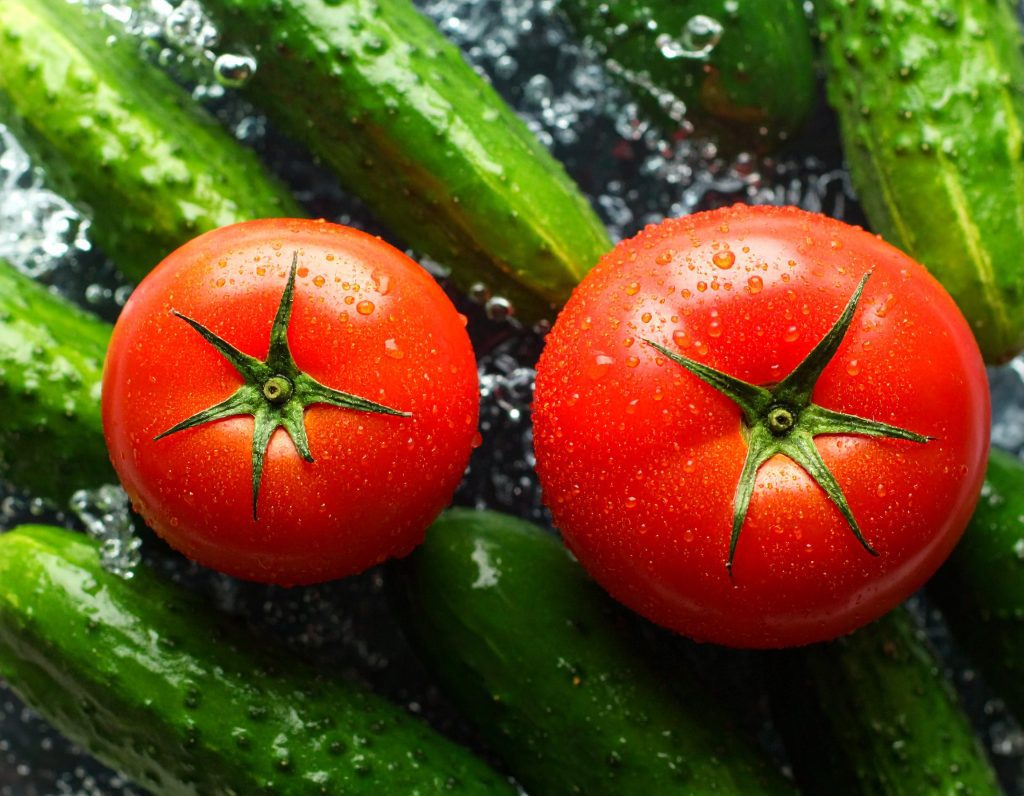
Tomatoes and cucumbers often share a plate, but they should never share storage space. While they pair beautifully in meals, keeping them side by side in the fridge or on the counter can drastically reduce their shelf life.
Tomatoes are moderate producers of ethylene gas—a natural compound that speeds up the ripening process. Cucumbers, however, are highly sensitive to it. When stored together, cucumbers quickly become soft, watery, and prone to spoilage.
Understanding Ethylene and Ripening
The relationship between ethylene gas and fruit ripening plays a major role in storage compatibility. In this case, the ethylene from tomatoes disrupts the freshness of cucumbers, shortening their usable life.
Storage Tip
Keep tomatoes at room temperature in a separate bowl, out of direct sunlight. Store cucumbers in the refrigerator’s crisper drawer, away from ethylene-producing fruits.
Storing these items correctly ensures both stay crisp and flavorful—just the way you want them when it’s time to toss that fresh salad.
1. Avoid Sprouting & Rot: Separate Onions from Potatoes
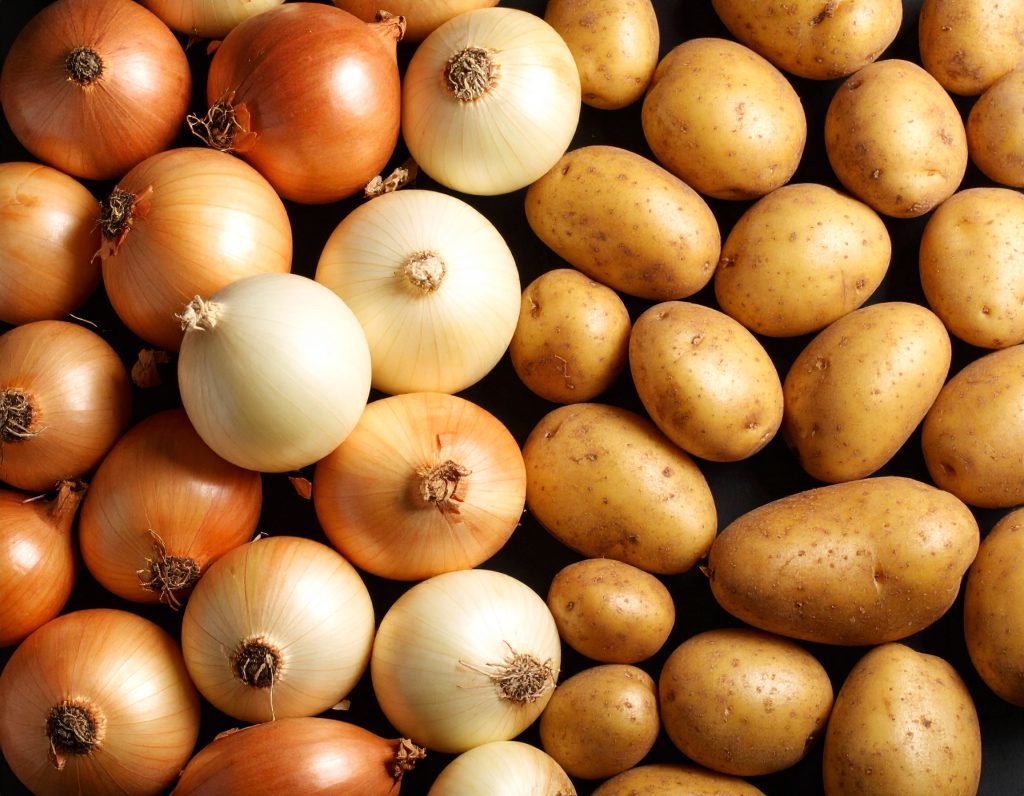
Storing onions and potatoes together is one of the most common food storage mistakes to avoid. While it may seem practical to keep these pantry staples side by side, doing so can lead to faster spoilage for both.
Onions release moisture and gases that can cause potatoes to sprout and decay more quickly. At the same time, potatoes emit moisture that can make onions soft and moldy. This mutual incompatibility leads to reduced shelf life, unpleasant textures, and unnecessary waste.
To store them properly, keep potatoes in a cool, dark, and well-ventilated space—ideally in a paper bag or open basket to prevent moisture buildup. Onions should be stored separately, in a dry, well-ventilated area, away from light and away from the potatoes.
Separating these two kitchen essentials is a simple but effective way to keep them both fresh longer and reduce the chances of having to toss spoiled food.
Conclusion: Smarter Storage for Longer-Lasting Produce
Understanding which foods should and shouldn’t be stored together is essential for maintaining freshness, minimizing waste, and getting the most value from your groceries. Many of the issues we face with early spoilage stem from natural interactions like ethylene gas exposure, moisture sensitivity, and incompatible ripening processes.
By learning how different fruits and vegetables affect each other in storage—and making simple adjustments—you can significantly extend the shelf life of your produce. Whether it’s keeping bananas away from apples or storing onions and potatoes separately, these easy habits can transform your kitchen routine.
Avoiding these common food storage mistakes doesn’t just improve food quality—it helps you save money on groceries, reduce waste, and enjoy better-tasting meals every day. With these kitchen hacks for food storage longevity, you’re well on your way to a fresher, smarter kitchen.

